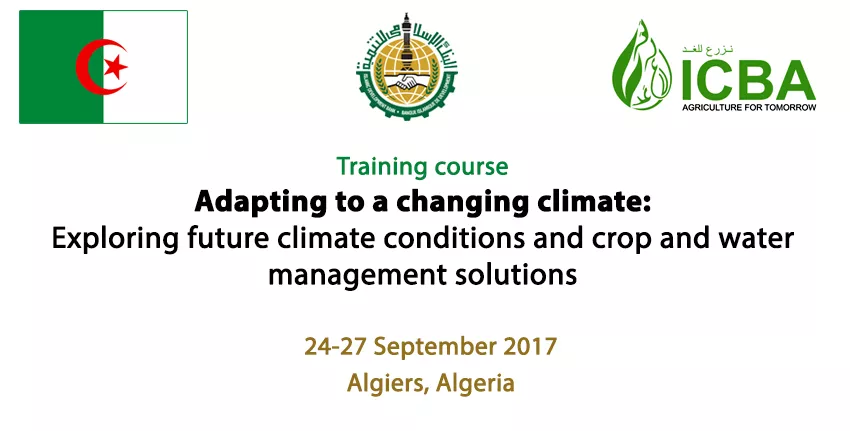Adapting to a changing climate: Exploring future climate conditions and crop and water management solutions
In North Africa, rising temperatures associated with climate change are expected to decrease the land areas suitable for agriculture, shorten the length of growing seasons and reduce crop yields. The decrease in annual precipitation that is predicted for North Africa in the 21st century will exacerbate these effects, particularly in semi-arid and arid regions that rely on irrigation for crop growth.
Droughts and floods are the most common climatic events in North Africa and represent direct threats to lives and livelihoods. Also, the main economic and social activities in North Africa are concentrated along the coastal zones. The population share within 100 km of coast is 68.8 percent in Algeria, 65.1 percent in Morocco, and 84 percent in Tunisia, and they all suffer directly from climate change.
As one of the world’s most water-scarce regions with high dependence on climate-sensitive agriculture, the economic and social conditions in North Africa are likely to deteriorate in the future. This is also particularly relevant to the region due to the high dependence of regional economies on agriculture. Crop production would be reduced across much of the region as optimal growing conditions are exceeded. The capacity of the region’s communities to cope will be significantly challenged.
This course highlights the above factors of climate change and proposes management solutions to mitigate these factors.
Organizers
- International Center for Biosaline Agriculture (ICBA), United Arab Emirates
- Ministry of Agriculture, Rural Development and Fisheries (MARDF), Algeria
- Islamic Development Bank (IsDB)
Event Coordinator
- Mr. Hamid Weld Yousef, MARDF
- Mr. Ghazi Al-Jabri, ICBA











